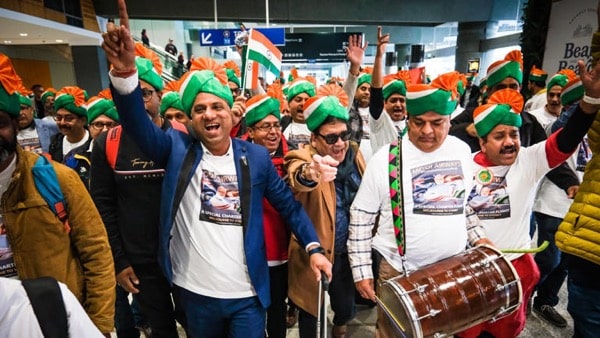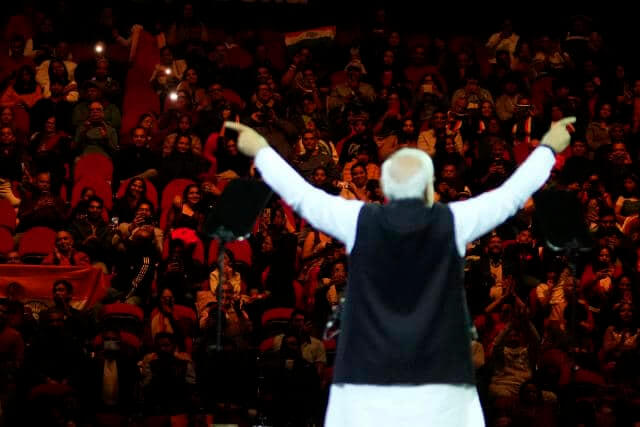The coverage of the recent visit of India’s Prime Minister Narendra Modi to Australia was met with widespread adulation, positivity and excitement by many in the diaspora as well as mainstream and multicultural media. We are no doubt at an exciting time in Australia-India relations and the prospect of closer ties has never been more real. Yet the mass hysteria and adulating nature of the coverage of Modi’s visit left me deeply uncomfortable and saddened by our inability to think critically and ask questions.
India has undoubtedly gone through many changes during Modi’s tenure. Some may argue that the economy has boomed under his leadership, others may say the opposite. Some may claim that Modi has radically improved India’s cleanliness and environment, others may say that it has worsened. Those political debates are not where my concerns lie. My concern is our collective wilful blindness when it comes to questions on Modi and his government on issues that concern the very basic foundations of democracy, freedom and human rights – issues that ought to be above political ideology. The list of those issues is long.
The arrests and prolonged detention of journalists and human rights activists who have criticised Modi and spoken out about the discrimination of minorities. The internet blackouts in Kashmir and Punjab denying citizens and press with the ability to share information about protests and unlawful arrests. The rise of Hindu nationalism and growing marginalisation and violence against minorities as well as weaponising legislation like the CAA and NRC that ultimately target the citizenship rights of Muslims (noting that the resultant protests saw the government outlaw gatherings of four or more people and saw a period of time where 23 people were killed and 1,500 arrested). The banning of a documentary that contains criticisms of Modi. The rewriting of history textbooks and school curriculums that erase the teaching of the Mughal era, Islamic influences in India and Darwin’s theory of evolution. This is not a complete list. These are not the actions we expect from any country that claims to be a thriving democracy. It is no wonder that India’s ranks in press freedom and democracy have nosedived in the time Modi has been in power.

Ultimately, dear reader, whatever your views are – if you find yourself reading this article and seething at the mere mention of any question or criticism of Modi, I ask you to introspect and ask yourself why? You are free to support any politician, without losing the ability to think critically. At the very least, question why a leader like Modi has refused to hold a single press conference in 8 years (including during his recent visit to Australia). We would be horrified if any of our leaders in Australia dodged basic accountability structures like that. This masthead quoted statements like “aap jaan mangege to wohbhi haazir hai” (if you ask for our life, we will give it to you) at the Sydney community reception. It echoed the frightening but likely true musing of Donald Trump that “I could shoot somebody and I wouldn’t lose any voters”. All of us are worse off when we choose to follow the masses without any pause for thought or critique.
Finally, you may validly wonder why someone like me who is willing to criticise Modi for lack of transparency is themselves writing anonymously. Call me a coward, but in answer to that, I think it speaks volumes about the current state of play in the Modi era. Critiquing Modi has become akin to being ‘anti-India’ or anti-national. It has turned people into social pariahs. Yet, I am truly proud of my identity. I visit India frequently. I have undertaken study there. I celebrate our culture and am ecstatic about the leaps forward in the Australia-India relationship – a credit to both the Australian and Indian governments. I am a proud Indian and proud of our diaspora. We can indeed celebrate and be proud of who we are. But we need not be blind.
Read More: Diaspora reception for PM Narendra Modi in Sydney





